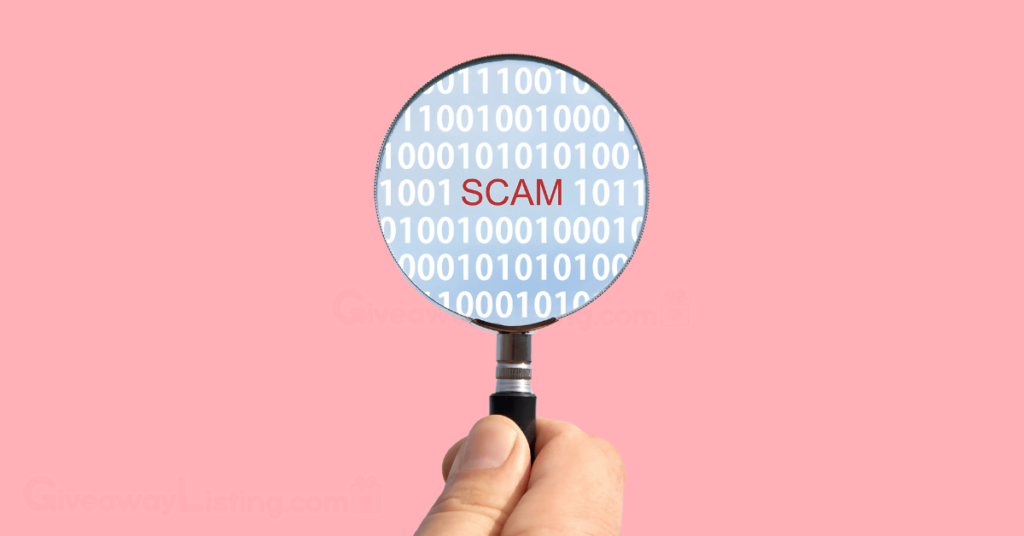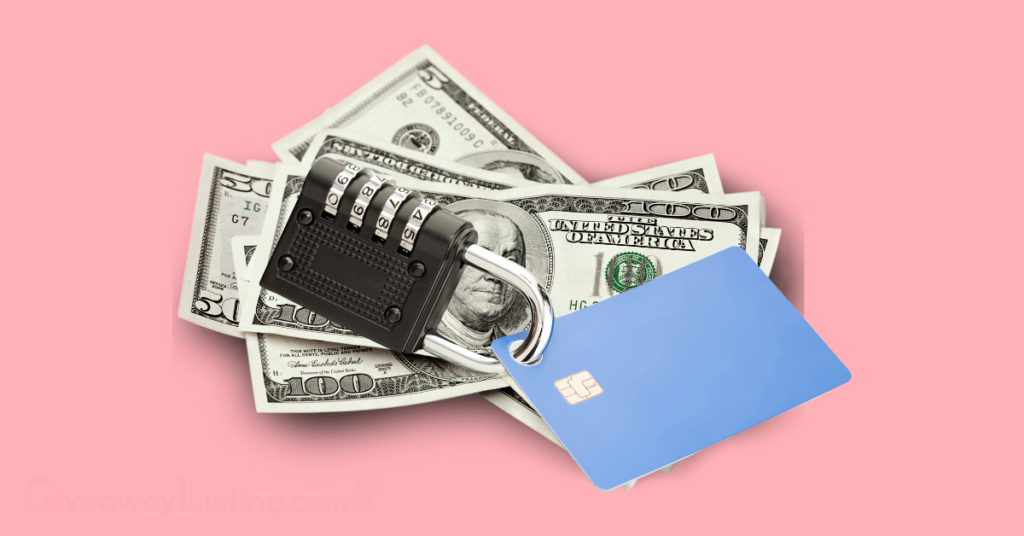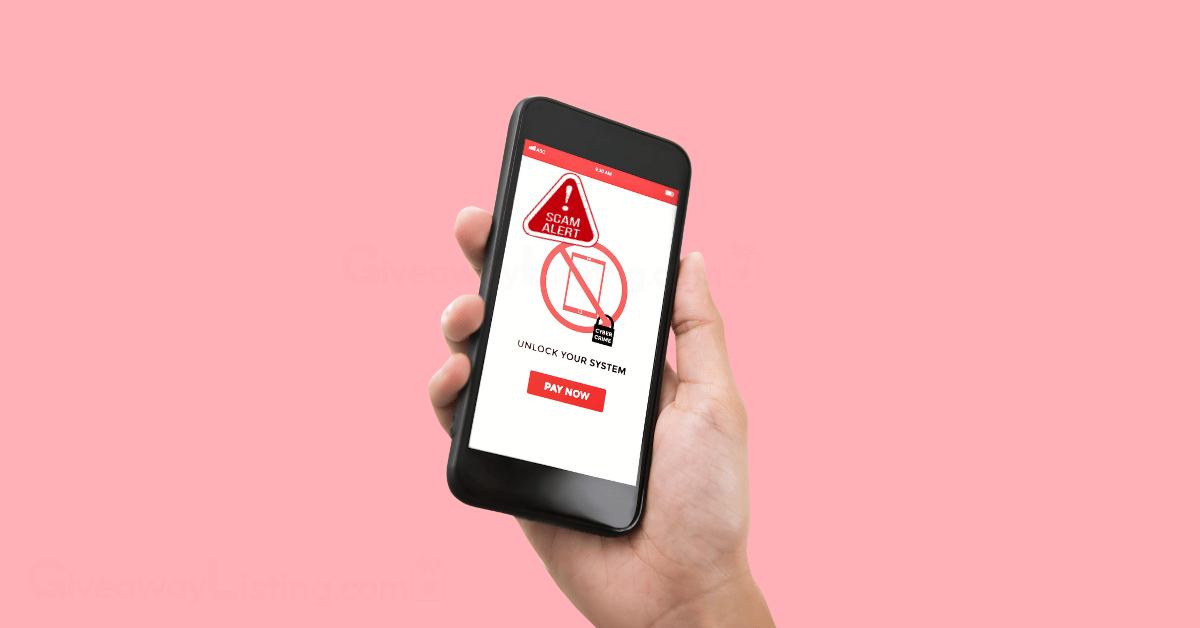The Latest Scoop on Sweepstake Scams: 2026 Update
Fraud losses are hitting hard! In 2024, consumers reported losing a jaw-dropping $12.5 billion to various scams, a 25% leap from the previous year.
According to the newest FTC data, prize, sweepstakes, and lottery scams specifically nicked $301 million from people. Scammers are definitely sharpening their skills.
In 2024, 38% of people who fell victim to fraud lost money. That’s a significant jump from 27% in 2023, indicating that these scams are becoming increasingly effective.
Scammers use slick tools like AI to make their bogus offers seem legitimate. Stay sharp!
Sweepstake Scams: A Fundamental Guide
Scams have become quite a challenge in the sweepstakes space. These scams are designed to lure victims with false promises of monetary rewards and extravagant prizes.
In this comprehensive guide, we checked into the murky sweepstake scams, showing the deceptive tactics employed by fraudsters and providing you with the tools to protect yourself.
We’ll highlight the red flags that can help you identify sweepstakes scams, ensuring you know what to look for. We’ll also learn from the past, examining examples of sweepstake scams to better understand their operation.
This article contains the latest information as of February 2026.

Sweepstakes Scams’ Alarming Statistics
- Fraud losses are skyrocketing! In 2024, consumers reported losing over $12.5 billion to all types of scams, a hefty 25% increase from 2023.
- According to recent FTC data, prize, sweepstakes, and lottery scams specifically accounted for $301 million in reported losses.
- Scammers are becoming more effective: In 2024, 38% of people reported losing money after encountering fraud, a jump from 27% in 2023.
- While younger people (aged 20-29) report losing money more often (41% vs. 17% for those aged 80 and above), older adults lose more enormous sums when victimized – a median loss of $1,500.
- Specifically, for sweepstake scams targeting older adults, 9 out of 10 lose money, with an average loss hitting $978 per incident reported to the BBB.
This article on top online sweepstakes contains a list of legitimate websites that list online sweepstakes all year round.
Not only do they list the sweepstakes you can enter, but they also provide tips on how to win and signs to look out for when entering to avoid being scammed.
They also point you to the sweepstakes hosts’ original websites. Be sure to check it out.
The 7 Telltale Signs to Watch Out For in 2026
We looked into this thoroughly to provide you with the most common and not-so-common signs of sweepstakes scams. Some signs to look out for include:
1. Payment for the Prize
One of the most common sweepstakes scams is the requirement for an upfront payment to claim a prize. Scammers often claim that this payment is for “taxes,” “shipping and handling charges,” or “processing fees.” Remember, real sweepstakes prizes are free.
2. Request for Personal Financial Information
Scammers often ask for personal financial information. However, you don’t need to provide your bank account or credit card number to claim a prize or sweepstakes.
Pro Tip: This article will further help you spot a fake giveaway. Read it before entering the next giveaway.
3. Poor Spelling and Grammatical Errors
Poor spelling and grammatical errors are a red flag for sweepstakes scams. Legitimate organizations have professional communications and do not make such mistakes.
4. Pressure to Act Quickly
Scammers often urge you to act quickly. This is a tactic to get you to decide without thinking it through. Urgency usually puts pressure on many people, and they act without carefully considering the implications.
5. Unknown or Unfamiliar Sponsor
If the sponsor of the sweepstakes is unknown or unfamiliar, it’s likely a scam. Always research the giveaway or sweepstakes before entering.
6. You Don’t Remember Entering
If you don’t remember entering a sweepstakes or lottery, then you didn’t win. Scammers often target people with notifications of a win for a contest they did not enter.
7. The Scam Originates from a Foreign Country
Many scams originate from foreign countries. Be particularly wary of any unexpected call from a number starting with 876, the area code for Jamaica.
The Vulnerability of the Elderly to Sweepstake Scams
Unfortunately, so many of the victims of sweepstakes scams are seniors. Older adults are popular targets, with people aged 55 and older accounting for 72% of sweepstakes scams reported to the Better Business Bureau (BBB).
Among this group, 9 out of 10 lost money, with an average cost of $978. Factors that increase the likelihood of seniors being scammed include the confinement and isolation experienced during COVID-19, mental decline, relative financial stability, and powerful social influence tactics.

The Proliferation of Scams in Canada Sweepstakes
In Canada, sweepstake scams have become a significant issue, with Canadians losing millions of dollars yearly. A typical scenario involves an unsuspecting individual, often a senior citizen, receiving a letter claiming they’ve won a sweepstakes.
The letter asks the ‘winner’ to send money to cover taxes and insurance to claim the cash prize. This is a clear red flag, as legitimate sweepstakes never demand payments before releasing winnings.
The CRA has clarified that they never offer sweepstakes or cash giveaways. Despite this, scammers continue to find new ways to deceive their victims.
The Deception of Publishers Clearing House Scams
Publishers Clearing House (PCH) is a well-known company that runs legitimate sweepstakes. However, scammers have been impersonating PCH and using deceptive practices to steal money and personal information from unsuspecting consumers.
They trick consumers into believing they must buy things on the PCH website to enter a sweepstake or that doing so would improve their chances of winning a prize.
Scammers often contact potential victims via phone, claiming they’ve won a grand prize. They then ask the ‘winner’ to pay a fee to process taxes, registration, delivery costs, or other bogus fees.

Scams and Fraud Protection Roles
Fraud protection plays a crucial role in sweepstake scams. It’s essential to be vigilant and understand the warning signs of a scam.
Here are some key points and actions to take:
- Never pay to get a prize. Actual prizes are free.
- Don’t give your financial information. There’s no reason to provide your bank account or credit card number to claim a prize.
- Be suspicious of a sweepstakes you didn’t enter. If you didn’t enter, you didn’t win.
- Hang up on “claims agents.” Legitimate sweepstakes companies don’t call to demand money.
| Scam Type | Common Tactics | How to Protect Yourself |
|---|---|---|
| Sweepstakes Scam | Asking for money to claim a prize | Never pay to claim a prize |
| Lottery Scam | Asking for personal financial information | Don’t give out your financial information |
| Prize Scam | Claiming you’ve won a prize you didn’t enter for | Be suspicious of prizes for sweepstakes you didn’t enter |

The Importance of Reporting Scams in Sweepstakes
Reporting sweepstake scams is crucial for several reasons. First, it helps protect others from falling victim to the same scam.
It also provides law enforcement with valuable information that can aid in the apprehension and prosecution of the criminals responsible.
| Reporting Body | Contact Information | Description |
|---|---|---|
| Federal Trade Commission (FTC) | ReportFraud.ftc.gov | The FTC handles complaints about deceptive or unfair business practices. |
| State Attorney General | Varies by state | Your state Attorney General’s office handles complaints about state law violations. |
| Local Consumer Protection Office | Varies by location | Your local consumer protection office can provide information about consumer rights and assist with complaints. |
| U.S. Postal Inspection Service | uspis.gov | If the prize promotion came in the mail, report it to the U.S. Postal Inspection Service. |
Learning from Past Scam Experiences in Sweepstakes
In 2021, the Federal Trade Commission (FTC) received more than 148,000 reports of fraud involving prizes, sweepstakes, and lotteries. Victims collectively lost $255 million; the most recent FTC Data shows people reported losing $301 million to this type of fraud.
One infamous case involved an 84-year-old man from Michigan who was deceived into believing he had won $2.5 million in a sweepstakes drawing.
Under the direction of the so-called “lottery officials,” he transferred over $70,000 to a new bank account with an unknown third party. The sweepstakes prize was a fraud, and the scammers walked away with the man’s money before he knew what hit him.
Sweepstake Scams: Closing Remarks
Despite the prevalence of these scams, there are ways to protect yourself. The first step is to know the telltale signs of sweepstake scams.
Real prizes are free. It’s also important to remember that there’s no reason ever to give your bank account or credit card number to claim any prize or sweepstakes.
This article covered topics such as the 7 Telltale Signs of Sweepstake Scams in 2026; the last content update was in February 2026. It’s crucial to stay informed and vigilant to avoid these scams.
Follow our website, GiveawayListing.com, to stay informed about new giveaways, exclusive contests, and guides to maximize your chances of winning!

Sweepstake Scams FAQs
Here are answers to some frequently asked questions about sweepstake scams.
How Do You Know if a Sweepstakes is Legitimate Online?
First, to determine if an online sweepstakes is legitimate, check if the organizer is a reputable entity – established companies or organizations are more likely to run legitimate sweepstakes.
Look for detailed rules and regulations; legitimate sweepstakes will have clear terms and conditions. Be wary of sweepstakes that ask for personal information beyond what is necessary; legitimate sweepstakes won’t ask for sensitive data like your social security number or bank details.
How to Prevent Sweepstakes Scams?
To prevent sweepstakes scams, first, never provide sensitive personal information like your social security number or bank details.
Verify the legitimacy of the sweepstakes by checking the organizer’s reputation and the sweepstakes rules and regulations.
How to Recognize a Fake Profile?
To recognize a fake profile, check for inconsistencies in their story or details; fake profiles often have conflicting information.
Look at the quality and quantity of their photos; fake profiles may use stock images or have very few pictures.
Be wary if they avoid meeting in person or via video calls; fake profiles often avoid real-time interactions. Always trust your instincts and report suspicious profiles.
Are Sweepstakes Trustworthy?
Sweepstakes can be trustworthy, but it largely depends on the organizer. If a reputable company or organization runs the sweepstakes, it’s likely to be legitimate.
However, there are many scams out there, so it’s essential to exercise caution, verify the legitimacy of the sweepstakes, and never provide sensitive personal information.
How Can I Report a Sweepstake Scam?
To report a sweepstake scam, contact your local police and file a report with the postal inspectors. If you suspect a lottery or sweepstake fraud originated abroad, you can report it to the International Consumer Protection Enforcement Network.
If a scammer pretends to be from the Publishers Clearing House, notify PCH at 800-392-4190. You can also report scams to the FTC to help warn others.
Can I Recover Money Lost to a Sweepstake Scam?
Recovering money lost to a sweepstake scam can be challenging, but there are some steps you can take. Contact your bank or credit card company immediately after discovering that a scammer has victimized you.
You may be able to recover some or all of your money. However, you must generally notify your bank or credit card company within 30 days of the transaction.
In cases where legal action is warranted, a consumer rights attorney can negotiate a settlement with the scammers on your behalf, potentially recovering lost funds or securing compensation for damages.
How Can I Differentiate Between a Legitimate Sweepstake and a Scam?
To differentiate between a legitimate sweepstake and a scam, look for clear rules and terms that ensure transparency and accountability. Legitimate sweepstakes always provide prizes that align with the company’s brand and budget.
In a legal sweepstakes, it is essential to note that you should never be asked for any payment or personal information, such as your credit card details, Social Security number, or bank account information.

